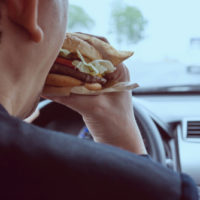The Five Kinds Of Impaired Driving In Port St. Lucie

The vast majority of car crashes in Florida — about 95 percent — involve some kind of human error. Sometimes, a one-time lapse causes these crashes. But typically, negligence is the root cause. For example, most jurors would not consider rolling down the window to be a big deal, even though such an act is technically distracted driving. But actions like texting while driving or surfing the web while driving are much different.
Negligence is basically a lack of ordinary care. If negligence is involved, the victim/plaintiff may have a claim for damages. These damages usually include compensation for both economic losses, such as medical bills, and noneconomic losses, such as pain and suffering. Additional punitive damages may also be available, in some cases.
Alcohol
Even though courts and law enforcement have cracked down on “drunk drivers” since the 1990s, alcohol still causes almost a third of the fatal car crashes in Port St. Lucie. Alcohol is one of the strongest and most widely-available drugs in Florida. Even one drink impairs judgment and slows motor skills.
Drugs
In some jurisdictions, “drugged driving” is almost as common as “drunk driving.” Only a few of these instances involve street drugs like LSD and cocaine. Many drivers are under the influence of opioids, like fentanyl or Oxycontin. Drugs like these are much stronger than morphine or even heroin. Other drivers take excessive amounts of over-the-counter drugs. Many of these substances have roughly the same effect on the body. Even some non-drug drugs, like caffeine, may impair some drivers.
Distraction
The National Highway Traffic Safety Administration considers distracted driving to be a form of impaired driving. As mentioned above, distracted driving includes the following:
- Cognitive distraction (taking one’s hand off the wheel),
- Visual distraction (taking one’s eyes off the road), and
- Manual distraction (taking a hand off the wheel).
Hand-held cell phones combine all three subparts of distracted driving. Hands-free devices may be even more dangerous, from a negligence standpoint. They involve both visual and cognitive distraction. Perhaps even worse, they give many drivers a false sense of security.
Fatigue
Drowsy driving is an issue in many large vehicle collision cases. Long-haul truck drivers often circumvent hours of service rules to stay on the road longer. Most shipping companies pay their drivers by the load instead of by the mile. Many tour bus drivers are also dangerously fatigued. These people often drive early in the morning and late at night. Most people are normally drowsy at these times, no matter how much rest they had the night before.
Medical Condition
Thousands of people in Florida suffer from medical conditions which could cause a sudden loss of consciousness. Some examples include heart disease, diabetes, epilepsy, and syncope (fainting spells). If these drivers lose control of their cars, their vehicles often cross over into oncoming traffic or barrel onto sidewalks. Such incidents could cause widespread serious injury. Arguably, these individuals take reckless chances when they drive. That raises the possibility of punitive damages, as outlined above.
Reach Out to Dedicated Lawyers
Impaired drivers often cause serious injuries. For a free consultation with an experienced personal injury attorney in Port St. Lucie, contact Eighmie Law Firm, P.A. We do not charge upfront legal fees in negligence cases.
Resource:
npr.org/2016/10/20/498406570/tech-human-errors-drive-growing-death-toll-in-auto-crashes
